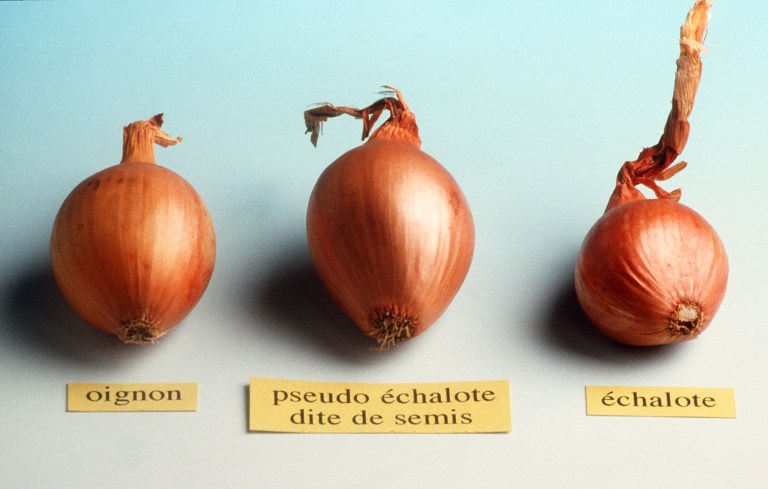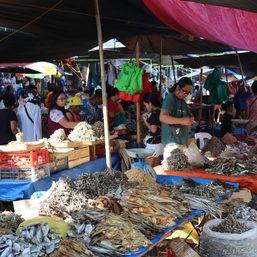SUMMARY
This is AI generated summarization, which may have errors. For context, always refer to the full article.

MANILA, Philippines – Foregone revenues from the country’s export of shallots–smaller but almost similar to onions–could have reached around P723 million as of September this year.
Leah Cruz, President of the Vegetable Importers/Exporters and Vendors Association (VIEVA), told reporters that shallot exports as of September this year only reached 5,200 metric tons (MT).
This is significantly lower than the 14,222 MT shipped in the same period last year.
The main cause of the decline is the weak demand for Philippine shallots owing to stringent quality standards imposed by its top export markets.
Cruz said the decline in exports and the depression in prices caused the industry to loose more than 200% of their sales revenues.
She said that at the height of shallot exports to various countries in the region, Philippine shallots were trading at P35 to P60 per kilo. But due to weak demand, wholesale prices are now down to P25 per kilo and this affected the industry’s export revenues.
“Based on records at the Bureau of Plant Industry-Plant Quarantine Service, shallot exports from 2008 to 2010. This year’s exports (as of September 2012) amounted to a measly volume of 5,200 metric tons compared to last year’s total export of 14,222 metric tons,” Cruz said.
“The setback further worsened as farmers abandoned shallot cultivation as many of them found the trade no longer viable after the export market weakened. Some even considered shallot farming as a sunset industry,” Cruz said.
Reviving exports to Asia
However, Cruz said the Department of Agriculture (DA) is now helping VIEVA and shallot farmers meet the requirements of their export markets to eventually revive their export to Asian countries such as Indonesia, Malaysia, Singapore, and Hong Kong.
Cruz said the DA has offered its assistance in training farmers on Good Agricultural Practices (GAP) and helped reach out to Indonesia, the Philippiines’ largest shallot export market, to again accept shallot exports from the country.
She added the DA is also helping provide seeds as well as the GAP’s approved fertilizers to encourage farmers to go back to planting shallots.
“The DA assistance program has reached farmers in the Ilocos provinces, Zambales, Pangasinan, Mindoro, Nueva Vizcaya, Nueva Ecija, and even the far-flung areas in the Visayas and Mindanao,” Cruz said. – Rappler.com
Add a comment
How does this make you feel?
![[ANALYSIS] A new advocacy in race to financial literacy](https://www.rappler.com/tachyon/2024/04/advocacy-race-financial-literacy-April-19-2024.jpg?resize=257%2C257&crop_strategy=attention)


![[In This Economy] Can the PH become an upper-middle income country within this lifetime?](https://www.rappler.com/tachyon/2024/04/tl-ph-upper-income-country-04052024.jpg?resize=257%2C257&crop=295px%2C0px%2C720px%2C720px)

There are no comments yet. Add your comment to start the conversation.